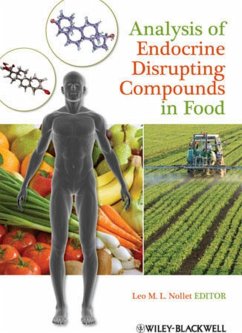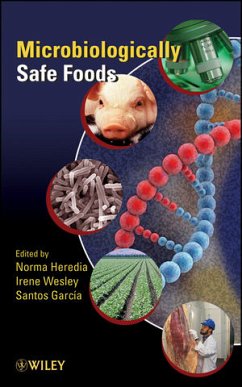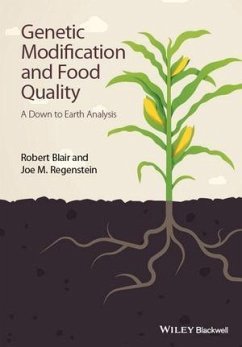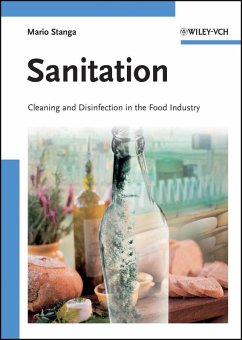
Biofilms in the Food Environment (eBook, PDF)
Versandkostenfrei!
Sofort per Download lieferbar
176,99 €
inkl. MwSt.
Weitere Ausgaben:

PAYBACK Punkte
0 °P sammeln!
In nature, microorganisms are generally found attached to surfaces as biofilms such as dust, insects, plants, animals and rocks, rather than suspended in solution. Once a biofilm is developed, other microorganisms are free to attach and benefit from this microbial community. The food industry, which has a rich supply of nutrients, solid surfaces, and raw materials constantly entering and moving through the facility, is an ideal environment for biofilm development, which can potentially protect food pathogens from sanitizers and result in the spread of foodborne illness. Biofilms in the Food En...
In nature, microorganisms are generally found attached to surfaces as biofilms such as dust, insects, plants, animals and rocks, rather than suspended in solution. Once a biofilm is developed, other microorganisms are free to attach and benefit from this microbial community. The food industry, which has a rich supply of nutrients, solid surfaces, and raw materials constantly entering and moving through the facility, is an ideal environment for biofilm development, which can potentially protect food pathogens from sanitizers and result in the spread of foodborne illness. Biofilms in the Food Environment is designed to provide researchers in academia, federal research labs, and industry with an understanding of the impact, control, and hurdles of biofilms in the food environment. Key to biofilm control is an understanding of its development. The goal of this 2nd edition is to expand and complement the topics presented in the original book. Readers will find: * The first comprehensive review of biofilm development by Campylobacter jejuni * An up-date on the resistance of Listeria monocytogenes to sanitizing agents, which continues to be a major concern to the food industry * An account of biofilms associated with various food groups such as dairy, meat, vegetables and fruit is of global concern * A description of two novel methods to control biofilms in the food environment: bio-nanoparticle technology and bacteriophage Biofilms are not always a problem: sometimes they even desirable. In the human gut they are essential to our survival and provide access to some key nutrients from the food we consume. The authors provide up-date information on the use of biofilms for the production of value-added products via microbial fermentations. Biofilms cannot be ignored when addressing a foodborne outbreak. All the authors for each chapter are experts in their field of research. The Editors hope is that this second edition will provide the bases and understanding for much needed future research in the critical area of Biofilm in Food Environment .
Dieser Download kann aus rechtlichen Gründen nur mit Rechnungsadresse in A, B, BG, CY, CZ, D, DK, EW, E, FIN, F, GR, HR, H, IRL, I, LT, L, LR, M, NL, PL, P, R, S, SLO, SK ausgeliefert werden.













